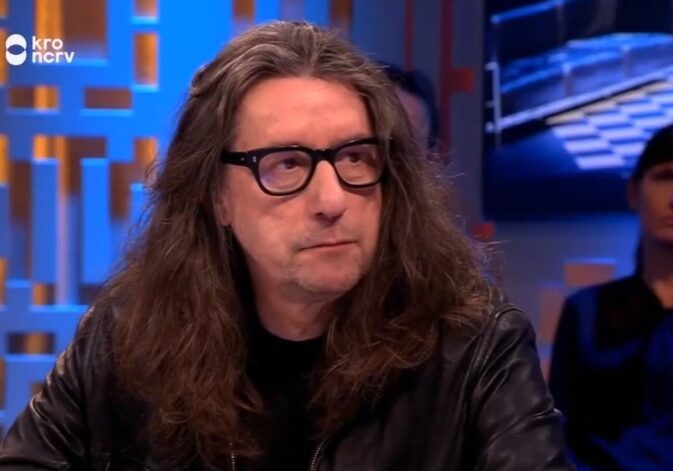Australia/Israel Review
Editorial: “Containing” ISIS
Nov 25, 2015 | Colin Rubenstein
Colin Rubenstein
The barbaric, coordinated attacks in Paris by Islamic State in Iraq and Syria (ISIS) terrorists on November 13, which claimed the lives of over 130 people, may well be more than just the latest barbaric atrocity carried out in the name of extremist Islamism. It may signal that ISIS has decided on a shift in tactics to a new emphasis on terrorism against the home front of its perceived enemies.
Paris actually appears to have been the culmination of a disturbing string of murderous terror attacks over several weeks, evidently planned and executed directly by ISIS – not just inspired or encouraged by the terror group as most past ISIS-linked attacks have been. These include the Oct. 10 Ankara bombing, which left over 100 people dead, the bombing of a Russian passenger plane over the Sinai on Oct. 31, killing 224, and the bombing of a Shi’ite neighbourhood in Beirut on Nov. 12, killing 43.
Such a shift by ISIS would be a frightening development. ISIS is obviously not only a highly capable organisation, but has a huge pool of recruits with Western passports and the ability to blend easily into Western societies, and an immense advantage over most terrorist groups in the form of its territorial safe-haven in western Iraq and eastern Syria, providing well-resourced, secure space to train and plan.
Furthermore, we know that ISIS has used chemical weapons in both Syria and Iraq.
The recent ISIS attacks are a reminder that terrorism can never be effectively managed or contained by purely defensive means. This is why it is disappointing that the US Administration has now strongly implied that the goal of its military campaign against ISIS is no longer, in President Obama’s words last year, to “degrade and ultimately destroy”, but simply to “contain”, as he said just prior to the Paris attacks.
Even more disappointing is the President’s denial since the attack that there is any need for a serious rethink of US strategy against ISIS – with the President insisting that, despite the “terrible and sickening setback” of Paris, “we have the right strategy and we’re going to see it through.”
Critics counter that the current US tactics – centred on very limited numbers of airstrikes in comparison to past air campaigns combined with very small numbers of military advisers in Iraq and Syria operating under tight restrictions – even if marginally increased, will never do more than, at best, contain ISIS.
If ISIS is indeed shifting tactics toward international mass-terror, more of the same militarily from its opponents likely means more Parises and Beiruts and Ankaras.
Yet, while the international strategy against ISIS needs re-thinking, some basic truths about Islamist terror and the overall geopolitical realities of the Middle East that existed before the current wave of attacks haven’t changed.
Today, no less than before, politicians and opinion-leaders must avoid demonising the entire religion of Islam itself or all Muslims, not out of fear of offending people, but simply because it’s both morally and empirically wrong and counter-productive.
Mainstream Islam isn’t the problem – it is an essential part of resolving the core challenge. Only other Muslims can challenge the religious interpretations upon which Islamist ideology relies.
At the same time, this absolutely does not mean we should shy away from naming the Islamist ideology fuelling these attacks. If we cannot name the problem, we cannot effectively fight it.
Similarly, theories that Western foreign policy, or supposed societal intolerance against Muslims, are the main cause of terror attacks and the rise of ISIS are as wrong, contemptible and unhelpful after Paris as before. Such posturing absolves the perpetrators of responsibility for their actions and effectively discourages the West from acting decisively and effectively against the threat and moral outrage of mass terror.
Similarly, the emerging ISIS terror threat, and the fact that Russia has nominally joined the fight against it, together with the Iranians, for the sake of propping up the Assad regime, does not mean that the West should treat Damascus, Teheran and Moscow as allies. The Assad regime, in its murderous assault on Syria’s Sunni majority, has been the greatest recruiting tool ISIS has ever had. If we want to maximise the appeal of ISIS to Sunni Muslims around the world, we should pragmatically cut a deal with Assad and his patrons.
Similarly, Iran remains the world’s most significant state sponsor of terror, is vastly more powerful than ISIS has ever been, and is seeking both nuclear bombs and regional hegemony. There is absolutely no sign the regime is moderating in the wake of the nuclear deal signed in July – rather the opposite. Bad as ISIS is, strengthening Iran, or losing sight of the even greater Iranian danger, would be short-sighted in the extreme.
Finally, despite considerable international rhetoric about a “diplomatic solution” for Syria, it is important to recognise that the Paris attacks have done nothing to improve the extremely dim prospects of any such outcome in the short term. The highly touted recent Vienna talks did not change this reality – essentially, they simply set an arbitrary deadline to try to conclude negotiations on a ceasefire. There is absolutely no sign the parties to the Syrian civil conflict are anywhere near ready to find enough common ground to end the bloodshed.
In the relentless clash between Western values and the raw, murderous religious chauvinism and expansionist ambitions that epitomise ISIS, a showdown is looming.
If ISIS is indeed shifting to a tactic of using international terrorism as a major weapon in that showdown, neither persisting with what is already being done militarily, nor placing our primary hopes on the apparent chimera of a short-term “diplomatic solution” to the Syrian civil war, are likely to be adequate means to address that challenge.
This article is featured in this month’s Australia/Israel Review, which can be downloaded as a free App: see here for more details.
Tags: Europe






